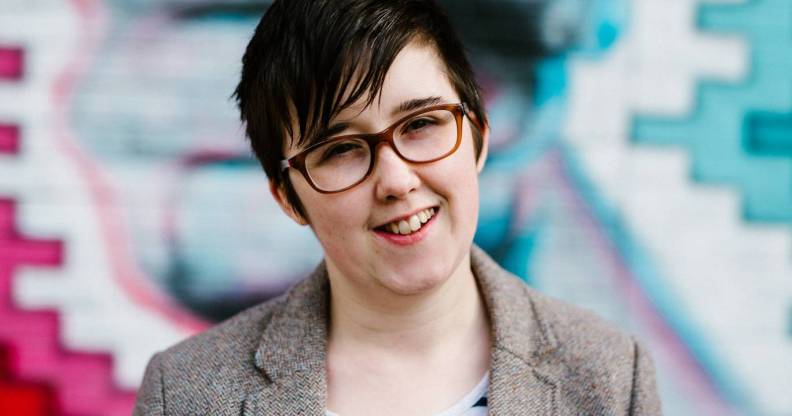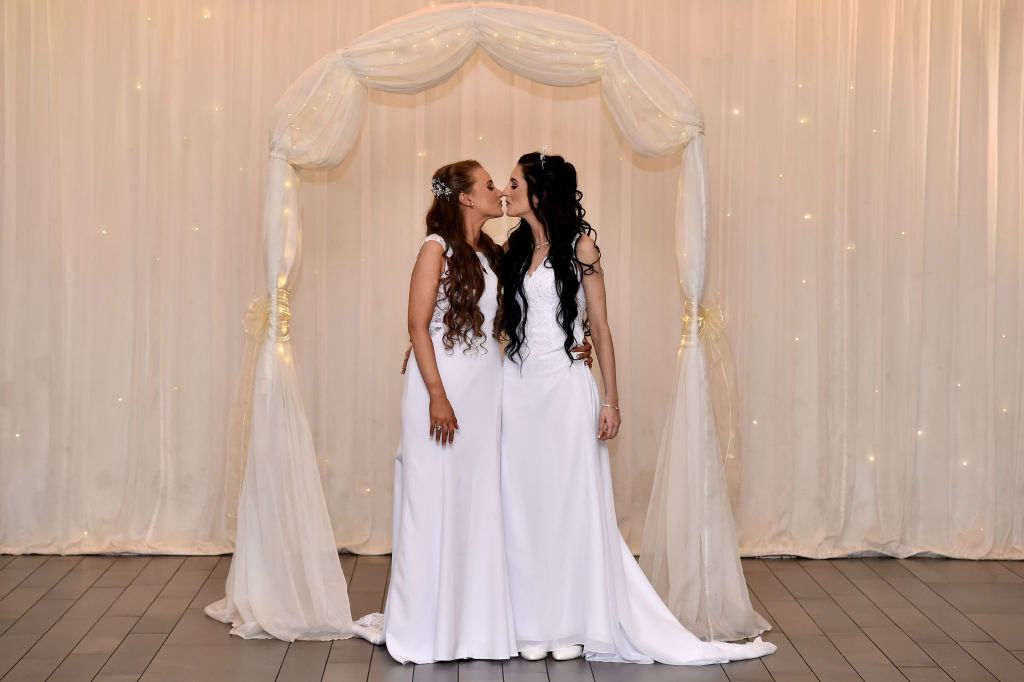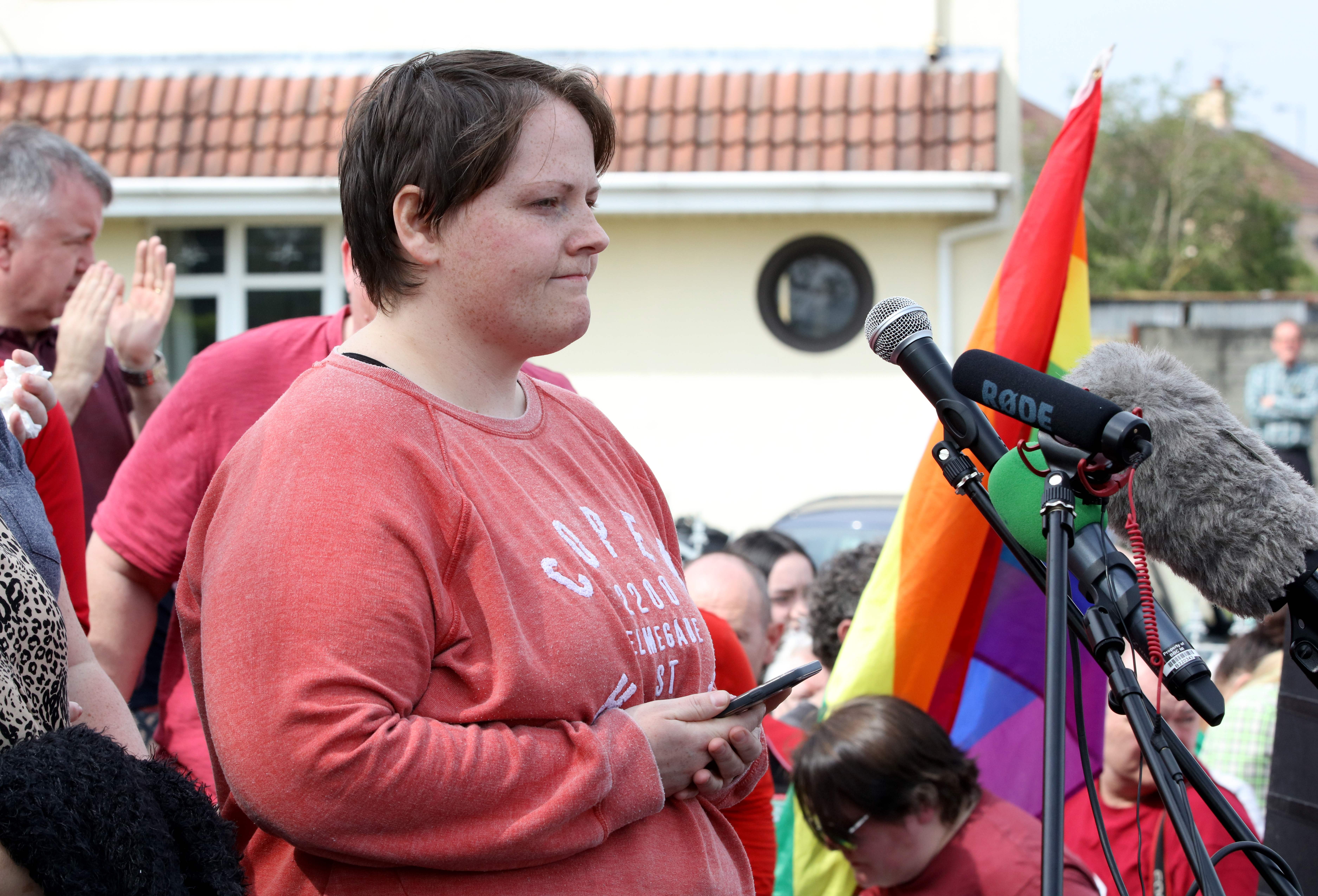Girlfriend of murdered Lyra McKee on ‘bittersweet’ same-sex marriage milestone: ‘It’s something we should be celebrating together’

Lyra McKee. (PH)
Lyra McKee. (PH)
Sara Canning, the partner of murdered gay journalist Lyra McKee, has spoken of her happiness and heartache as same-sex marriage is finally legalised in Northern Ireland.
McKee was tragically shot dead in April while she was reporting on riots that had broken out in Derry. Four men have been arrested under the Terrorism Act after the New IRA claimed responsibility for her death.
Before her death McKee was a strong campaigner for marriage equality and was planning on proposing to her partner, Sara Canning. She had even bought an engagement ring.
Speaking to PinkNews on the day of Northern Ireland’s first same-sex wedding, Canning said that McKee would be “overjoyed” if she had lived to see the momentous milestone.
“But obviously it’s bittersweet. Lyra should be here, it’s something we should be celebrating together,” she said. “It’s been kind of heartbreaking today, but at the same time you have to look at the positives, and the positives are there for so many people who now get to realise their dream.”
The couple had discussed their own dream wedding at length, and if Lyra McKee were alive she’d be in the thick of planning, Sara believes.
“More than likely she’d be talking about venues and what we were going to wear and where we going to get married, and things like that,” she said.
“The path we were going to go down was to get married in the Republic of Ireland, where same-sex marriage is legal, and then as soon as we crossed the border it would revert to a civil partnership and that marriage wouldn’t be recognised.
“So to know that we could’ve got married in Northern Ireland and had it recognised by our own government and our own people would’ve been phenomenal.”
As she continues to keep Lyra’s legacy alive, she takes heart from the fact that her partner’s death may have in some way contributed to the cause. “Lyra’s murder and the news coverage, there was a real outpouring of anger and just disappointment that we haven’t moved forward, so I think I’d be remiss to say that I didn’t think she was a catalyst, that her murder contributed something.
“But I also wouldn’t take away from the activists who worked on this for so long,” she added.
The legalisation of same-sex marriage was the culmination of five years of campaigning led by the Love Equality Campaign for Marriage Equality and Amnesty International.
Patrick Corrigan, the director of Amnesty International in Northern Ireland, told PinkNews that he believes the long struggle actually helped drive a bigger societal change in the conservative country.

Robyn Peoples and Sharni Edwards kiss after they became the first legally married same-sex couple in Northern Ireland on February 11, 2020 in Carrickfergus, Northern Ireland. (Charles McQuillan/Getty)
“It took us longer to get here than anywhere else in the UK or in Ireland, we had to overcome more obstacles and navigate around more political opposition than anywhere else. And that I suppose has made the success all the sweeter,” he said.
“As the campaign did take so long we’ve been able to bring a lot more people with us and there’s now absolutely overwhelming support among the public for marriage equality.
“It meant that we were able to have a lot more conversations with people, a lot more discussions through the media, and I think as a result this is an even bigger win. It’s not just a change in the law, I think we have changed Northern Ireland for the better.”
He hopes their victory will serve as an inspiration in Northern Ireland, proving that it is possible to succeed in the face of huge political pushback.
“I’m happy that we showed that campaigning works, and that when people mobilise on the streets and online you can effect change, you can get the laws changed and win rights for people,” he said.
“There will always be campaigns to fight and win for equality, whether in Northern Ireland or internationally, and I think those are the lessons that we will take on to the next issue.”


